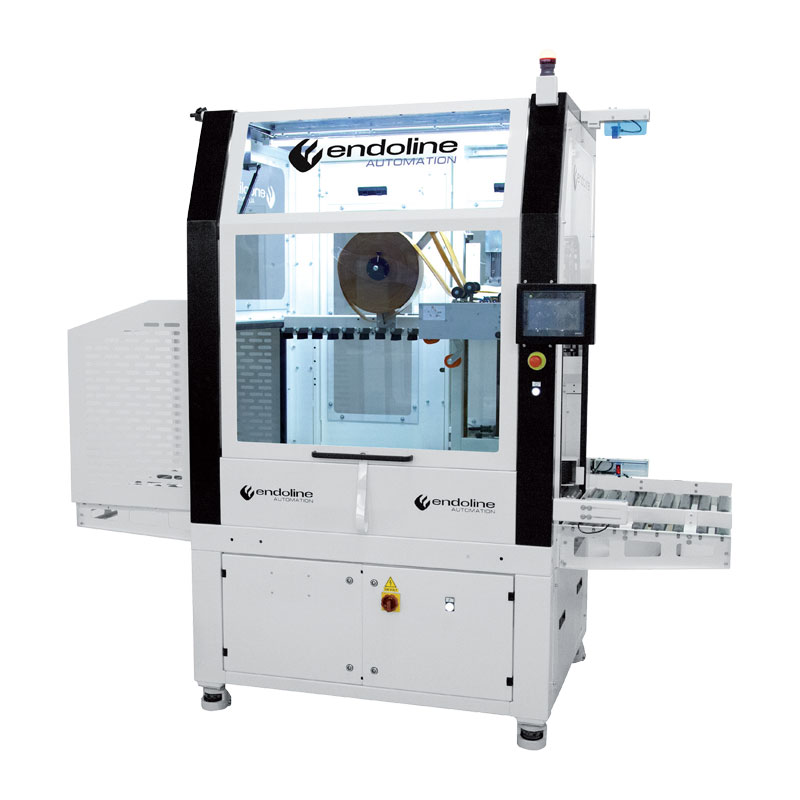Automation is No Longer Optional – It’s Essential for UK Manufacturing Resilience
At Endoline Automation, we’ve spent decades supporting manufacturers through end of line systems which are designed to optimise output, reduce labour strain, and improve overall efficiency. But the landscape is shifting. What was once considered a competitive advantage is now a necessity.
Our recent customer insight survey confirmed what we’ve long suspected: 100% of respondents agreed or strongly agreed that automation can still significantly improve their productivity, efficiency, and workforce engagement. This isn’t a marginal opinion this is a universal industry truth.
As the UK continues to deliver on the ambitions set out in the Industrial Strategy, it’s clear that automation and robotics are central pillars in rebuilding a resilient, competitive, and future-focused manufacturing sector. But despite this strategic alignment, barriers remain.
Uncertainty, Skills Gaps, and a Call for Action
The pandemic, and the economic uncertainty it unleashed, continues to shape capital investment decisions. Over one-third of our survey respondents cited this lingering commercial ambiguity as a key obstacle to automation adoption. A further 20% highlighted limited access to government funding or grants, something we urge policymakers to address if the Industrial Strategy’s vision is to be fully realised.
The strategy champions advanced manufacturing and digital technologies, and outlines public investments in AI, robotics, and infrastructure. But support must be tangible on the ground. Whether through the Industrial Strategy Challenge Fund or new food-sector-specific innovation grants, greater access to capital will directly accelerate automation adoption.
Spreading Investment Over Time: Integration Confidence Is Growing
One of the more promising findings from the survey was that over a third of respondents are confident they can integrate new technologies incrementally, spreading investments over time and minimising disruption. This supports one of the core messages of the Industrial Strategy: that digital tools must be scalable and interoperable, allowing UK manufacturers to modernise in stages, not all at once.
As a supplier of modular, customisable automation solutions, Endoline is uniquely positioned to support this trend. From case erecting to robotic palletising, our systems are bespokely designed to be integrated into existing operations with minimal disruption—helping teams build automation confidence from the ground up.
Legislation Looms Large
When asked about what legislative developments would have the biggest impact over the next decade, 70% of respondents pointed to new labour laws, including changes to minimum wage, as the most significant driver. This finding echoes why many companies first turn to automation—to create consistency, flexibility, and cost-stability in the face of rising employment costs and labour shortages.
Interestingly, net zero targets and energy legislation did not register as a major concern, suggesting that while sustainability is on the radar, productivity and workforce structure still dominate day-to-day decision-making in operations.
Automation Is a Workforce Enabler – Not a Replacement
While the headlines often paint AI and robotics as job eliminators, our findings suggest otherwise. 80% of survey respondents viewed automation, AI, and digital tools positively—with 40% saying they create a more productive, engaging work environment, and another 40% citing their role in eliminating repetitive, low-value tasks.
That said, it’s telling that 20% of companies are still using paper-based production records, stored in filing cabinets. This digital disconnect must be addressed if the UK is to lead in smart manufacturing. As the Industrial Strategy rightly identifies, building digital infrastructure and standardising data flows is just as important as physical automation.
ROI Expectations Are Maturing
When it comes to return on investment, 50% of companies surveyed said they’re satisfied with a 3-year payback. This is a significant cultural shift. Gone are the days when automation was expected to deliver instant returns. Instead, manufacturers are beginning to understand automation as a long-term productivity asset, not a one-time cost saving.
The government’s focus on long-term sector resilience and digital transformation only reinforces this thinking. Automation is no longer an isolated investment – it’s part of a national strategy for smarter, more sustainable manufacturing.
Final Thoughts: From Policy to Production
The UK’s Industrial Strategy is right to champion automation, robotics, and data-driven manufacturing. But the government now needs to ensure its policy ambitions are supported by accessible funding, training pathways, and a strong SME support framework. Our survey results confirm that the will is there – what’s needed now is the means.
At Endoline, we’re proud to be supporting manufacturers on this journey. We believe that every production line, no matter how complex or traditional, can benefit from tailored, scalable automation. The future of UK manufacturing won’t just be automated; it will be empowered.



Leave a Reply
Want to join the discussion?Feel free to contribute!